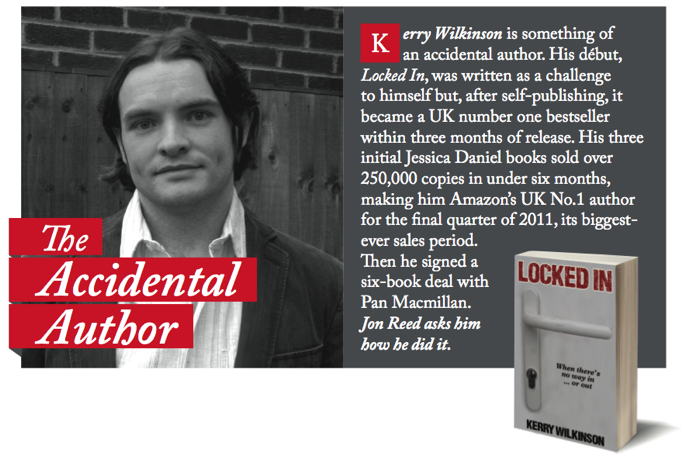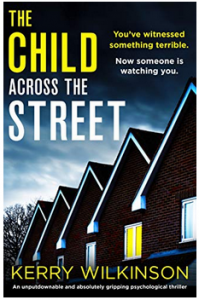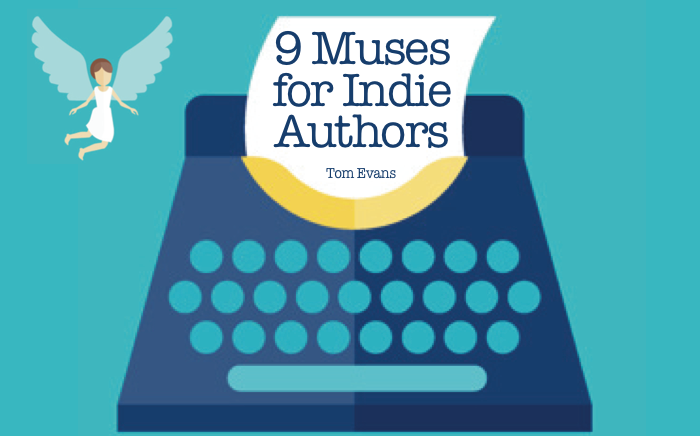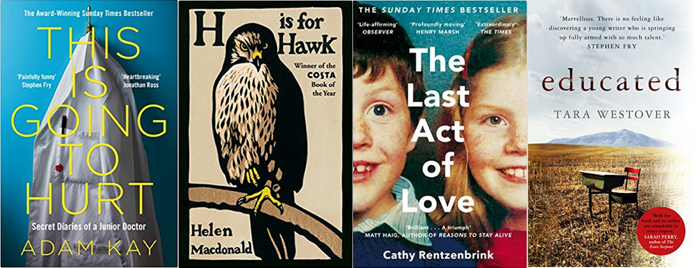The Accidental Author: How Kerry Wilkinson conquered the Kindle charts
 Kerry Wilkinson’s three initial Jessica Daniel books sold over 250,000 copies in under three months. Then he signed a six-book deal with Pan Macmillan. Jon Reed asks him how he did it.
Kerry Wilkinson’s three initial Jessica Daniel books sold over 250,000 copies in under three months. Then he signed a six-book deal with Pan Macmillan. Jon Reed asks him how he did it.
This interview first appeared in issue 1 of Publishing Talk Magazine. An extract first appeared on this blog on 15 Aug 2012.
[rt_reading_time label="Reading Time:" postfix="minutes" postfix_singular="minute"]
JR: Why do you think the Jessica Daniel books have been so successful?
KW: It’s largely word of mouth – a lot of people like the books and have happily told their friends and family. When I was writing, I only set out to try to create something I would like. I’m not that worried about other people’s opinions, certainly within the industry, because I constantly ask myself the question: “Would I read this?” or “Does this make sense for me?”. That doesn’t mean I ignore others, especially now I’m working with a publisher, but I trust myself more. I look at things from my own – a reader’s – point of view, not from a publishing one.
JR: Crime fiction seems quite a leap from sports journalism – what drove you to crime?
KW: I just wrote what was in my head. I don’t even read crime fiction very often, so the genre isn’t that familiar. Perhaps that is part of it? I didn’t try to force myself to do something that was unnatural or work towards some grand marketing plan – I just wrote. Yes it’s a crime book, but people come back to read the sequels because of the characters, not the crimes.
It’s a crime book, but people come back to read the sequels because of the characters, not the crimes.
JR: Why did you choose to self-publish rather than go with a traditional publisher?
KW: Because I wasn’t fussed. I have a great career and I never wrote because I expected any of this to happen – I wrote because I wanted to. I had no inclination to send to publishers because I wasn’t bothered about “being published”. I only self-published because I figured I may as well and only started thinking about ways to make my files as good as they could be when I was in iTunes’ top 20 and I realized people wanted to read it.
JR: How do you find the time to write books alongside a full time job?
KW: I just get on with it. I’m married but we don’t have kids, so instead of making excuses, I simply write. It’s not that hard really. I usually plot extensively, writing the whole book out chapter by chapter. It comes to about 4-6,000 words. Then, when I come to write it properly, it is more like joining dots. I still have better ideas as I go along – and things can change drastically – but ultimately I know what I am working towards. I write every day and I work until I’m done. I’ve always been disciplined with much of what I do. I think a lot of it depends on the type of person you are.
JR: Is print still important, or is self-publishing all about digital?
KW: I think a self-published print edition is largely pointless. You’ll make no money, struggle to get it anywhere in terms of shops, and just make work for yourself. I created one because people kept asking me – but there really wasn’t much point. That said, print sales outsell ebooks in the wider sense of things – which is partly why I accepted a publishing deal when it came along.
JR: What was your pricing strategy? How does this compare with pricing by traditional publishers?
KW: I priced Locked In at 99p, then Vigilante (book two) at £1.99 and Woman In Black (book three) at £2.99. My idea was always to sell as many of the first book as I could and not really worry about money. I was confident in what I had written and thought that, if I could sell a lot of copies, people would pay more for the sequels. That has worked out. I’ve sold more copies of Locked In than anything – and it has made the least amount of money. I do think it is a good idea to sell the first book of a series for a low price. Essentially, why wouldn’t you?
It’s a good idea to sell the first book of a series for a low price.
The only time price is an issue is when people see day-of-release ebooks costing more or the same as a day-of-release hardback. That takes the piss because there are clearly fewer costs involved. Why would you go out of your way to annoy your readers? It makes no sense to me.
People are happy to pay for something if they feel it gives value. If they are invested in a character, or are going to re-read something, then the cost isn’t so much of an issue. But they don’t like being taken advantage of – and they don’t forget. If you lose a reader, then they are gone.
JR: People are reading more books following the take-up of e-readers; but there are also many more books out there. How do you make yours stand out from the crowd?
KW: It’s an awkward one. The truth is, there is no singular answer and no magic wand. People email me thinking there is – but it’s fantasy. I had a drink with Rachel Abbott, who went to number one on Amazon after me, and we have completely different stories. If there was a magic wand, the minute it became known about en masse is the moment it would stop working.
That said, there are lots of things you can do to give yourself a chance. For instance, I made an effort with my sample because I bought a Kindle and thought about the process. I downloaded samples and it struck me that publishers put all the same printing information at the front as they would do for a paperback. But that makes no sense because you only give people 10% as a sample – so give them 10% of story to decide if they want to spend the money or not. I reworked my first three chapters when I figured this out.
JR: What marketing have you done? Do you use social media to connect with readers?
KW: Not loads. I concentrated more on the product and the ebook itself. A lot of my social networking comes after people have read the books. I get lots of tweets and Facebook messages – plus emails – from readers. People want to know when the next book is out and so on. That’s where all the interaction comes and I love it. People have told me their life stories, people tell me who their favourite characters are and what they’d like to see happen. My website is basic – but it tells you the information you need to know, so it works in that sense. Ultimately readers want to know when the next book is out and how to contact you.
I do tweet about my books – but most of my tweets are about me and my life. If anything, I think that helps because readers feel as if they are getting to know me (which they are) instead of being shouted at by some corporate marketing machine (which they are not).
JR: You’ve recently signed with Pan Macmillan. Why have you decided to go with a traditional publisher now?
KW: I figured “why not?” If the absolute worst happens and I never sell another book, thenI have already made enough money to pay off my mortgage. I have sold 300,000 books, I’ve written a number one bestseller. I have a good career as a sports journalist … and so on. So if that’s the WORST that can happen, then I’m already on a very good platform. The best that can happen is that Macmillan help to make Jessica much more widely known through the physical paperbacks – as well as the ebook audience the books already have. Plus it doesn’t stop me writing anything else. I have loads of ideas and I will continue to write while I enjoy it. I can self- publish other things if I fancy it.
I made an effort with my sample because I bought a Kindle and thought about the process.
That said, I did quite enjoy the immediacy of self-publishing. Macmillan have been great about involving me in most things and they have taken on board all sorts of ideas I’ve thrown their way. It is very collaborative.
JR: Traditional publishers are increasingly approaching successful self-published authors. Are authors taking all the risks now?
KW: I think what this does is marginalize agents. Publishers are approaching successful self-publishers because they are signing someone who already has a following – something they strive for and spend lots of money on. That doesn’t mean agents are unnecessary. Mine is brilliant. I bounce all sorts of ideas off her and they have been good at sorting out extra things, such as audiobooks and overseas rights.
But I would never approach an agent before self-publishing. Why bother having an agent dictate to you what they think might sell when you can let the market decide? If it goes well, they will come to you anyway.
JR: What advice would you give to someone considering self-publishing?
KW: Just do it. The worst that can happen is that you don’t sell many books and you continue having the same life you already have. But the best that can happen outweighs that enormously.
Kerry Wilkinson’s Top Tips for Self-Publishing
- Don’t get ahead of yourself. Write the book, enjoy writing it. Think if it works on its own or if you have a series in you. When it’s done, then start thinking about what you want to do next.
- Understand the medium. If you don’t have a Kindle, buy one! Read books on it, buy books on it, browse for books on it. Think about how you find authors you’ve never heard of by using it.
- Don’t expect things to happen too quickly. Just be cool and carry on with your life.
- Don’t annoy people. If you use social networking, be yourself. Don’t spend all your time spamming the world with “buy my book”. People will go out of their way not to buy it. Be normal,
be yourself. - Don’t put all your eggs in one basket. The truth is, regardless of how good your book is, the chances are you won’t sell enough copies to make a living or do anything more than enjoy a sense of achievement through writing it.
- Be lucky!
 UPDATE 2020: Kerry Wilkinson’s latest book, The Child Across the Street, is published by Bookouture (July 2020) and out now.
UPDATE 2020: Kerry Wilkinson’s latest book, The Child Across the Street, is published by Bookouture (July 2020) and out now.



I read “Locked In” and thought it was incredible. I really enjoy Kerry’s writing style. Definitely one of my favorites.
Tamara
I’m all about learning the book publishing process
Before they flick on the jug, I think all Writers and Publishers should plug into your site. It’s much more stimulating and better for you than coffee.
The story behind the story with Kerry Wilkinson is what it’s all about.
Gotta go, I’m into the second last chapter of my next book.
Please keep up your great work.